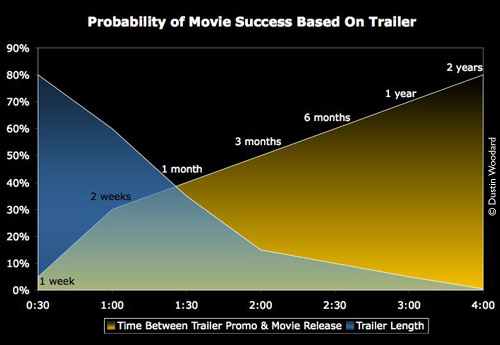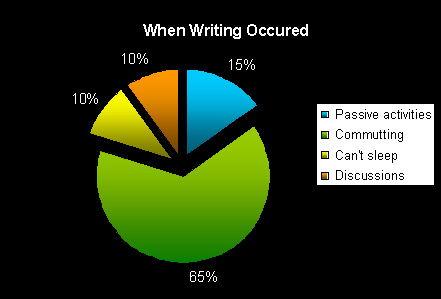Unseen Abilities at RIFF
May 28 2010
 We’re pleased to announce that Unseen Abilities will be playing at the Rainier Independent Film Festival.
We’re pleased to announce that Unseen Abilities will be playing at the Rainier Independent Film Festival.
It will be showing in what we feel is the prime time slot: Saturday June 12th at 8pm in the larger venue. Here’s the full schedule.
We’re looking forward to the festival and its beautiful location. As Rebecca Winters Keegan of TIME magazine wrote about the festival:
In the foothills of Mount Rainier is a rarity — a film festival actually focused on film.
 If you’re up for a bit of a drive, come out and see the film. Also wish us luck in nabbing an award.
If you’re up for a bit of a drive, come out and see the film. Also wish us luck in nabbing an award.
Unseen Abilities Plays in First Film Festival
October 7 2009
Crowned Indie-Fest Winner for the 5th Annual EFF (Ellensburg Film Festival), Unseen Abilities headlined the short program on Sunday, October 4th.

 Films winning awards at EFF were:
Films winning awards at EFF were:
- Best Feature - World’s Greatest Dad
- Best of Washington - Back to the Garden
- Best Documentary - Sweet Crude
- Best Short - Fan Mail
- Indie-Fest Competition Winner - Unseen Abilities
- Best of Fest - Pirate for the Sea
EFF was a blast. Looking forward to future festivals!
Official Rejection Film
September 10 2009
Just saw the trailer for Official Rejection - a film that, ironically, is getting picked up at various film festivals. It certainly has appeal to hundreds of thousands of filmmakers wondering what they have to do to get into a festival (and if getting selected is even that helpful).
To date, the film has submitted itself to 48 different festivals, but got the nod in 10 of them, including wins at the Oxford Film Festival, deadCenter Film Fest, and VISIONFEST.
Though they are doing well at festivals and are selling clothing and books on their site, I think they are missing a far greater marketing opportunity. If I were working with Official Rejection, I would launch a community site to embrace the “rejected” filmmaking community and would create badges, awards (most rejected, etc) and otherviral enablers as their audience is far greater and far more valuable than then the film festivals they are attending. I recommend they embrace rejectees, rather then brag about their festival acceptance.
Check out the Official Rejection trailer yourself:
Short Film Lengths - Does Size Matter?
August 23 2009
Being a first-time filmmaker who knew he didn’t have enough money to make a full feature, I relied on the advice of friends: “If you want to make a short, make sure it is under 30 minutes–otherwise, you’re film will be considered a feature and you’ll be competing against the big boys.”
 Seemed like solid advice at the time. I ended up with a film that naturally would have been about 35 minutes, but edited down to the recommended 30 minutes.
Seemed like solid advice at the time. I ended up with a film that naturally would have been about 35 minutes, but edited down to the recommended 30 minutes.
As I began submitting to festivals, I wondered what festivals thought of lengthier short films. The official stance from any festival is that the runtime doesn’t matter.
As I began tracking which festival selections and put myself in the shoes of a festival programmer, it is clear that film-length does matter.
For example, in 2009 the largest film festival in the U.S., SIFF, showed 124 short films. Thanks to the full 25 days SIFF has to screen the films, runtime matters little to them compared to other festivals. 94% of the films selected were under 20 minutes. The only one approaching 30 minutes was the newest Wallace and Grommit film.
Why does film-length matter?
It’s simple: when programmers consider including a 30-minute short in their festival, they have to cut approximately five other short films out of the festival because they have a choice between showing the 30-minute short, or six 5-minute shorts. Plus when programmers are playing scheduling tetris, it is difficult to fit a longer short into a themed short films package. This means the lengthy short has clearly stand out above nearly all other shorts to even be considered for most film festivals.
In hindsight, I should have planned for Unseen Abilities to be a 60-minute feature. If I were to shoot another short, I would try to shoot for a 5 minutes film and be sure to stay under 10.
Search Marketing For Filmmakers
January 27 2009
I wrote a guest post last month over at IndieGoGo, a great fund raising and awareness tool for filmmakers, on the topic of using search marketing to attract an audience for your film.
Here’s a quote from the post:
Making a film is a big enough challenge in itself, but if you are like most low-budget independent filmmakers, you’ll quickly discover that finding an audience for your film can be even more challenging.
Outside of widely known marketing methods like submitting to festivals, inviting people to special screenings, and attempting to make friends on social networks, most filmmakers fail in allowing their audience find them on their own.
If you are a filmmaker looking to build an audience, I suggest you read the rest of the article: Build Your Film’s Audience Using Search Engines
Probability of Movie Success Based On Trailer
November 19 2008
Inspired by funny GraphJam charts, I created this graph based off trailers I’ve seen in the theaters and the resulting box office success and fan ratings.

Do you agree? Love to see your comments.
Film Festivals Using Twitter
October 24 2008
Most, if not all, film festivals have Myspace accounts, some are on Facebook, but I was most surprised to discover festivals using twitter. It came to my attention when @slamdance recently opened an account. I also see @cannes and @afifestnews. Despite the great popularity of the festivals, the three are only averaging about 20 followers a piece thus far.
The greatest value of a festival twitter account for festivals will be during the festival for last minute updates, connecting live wither others at the festival, and getting instant feedback on the movies and events.
Submitting to Sundance
September 9 2008
Like most new filmmakers, my primary goal with my film was to submit it to Sundance and get accepted into the film festival. As you join the industry, you start to learn about many other film festivals that matter as well, but there something about the recognizability of Sundance. In the public eye, if you say you’ll be submitting it to film festivals, the first thing that will come out of most people’s mouths is: “You mean like Sundance?”
Last Thursday I mailed out Unseen Abilities in time for the regular Sundance deadline and you should have seen the look on the girl’s face who prepared my package - she was absolutely amazed that someone from around here was mailing something to Sundance (complete with a Hollywood, CA address). Even though I just gave her my address, she was star-struck and said “Are you from around here?”
I must admit that it felt good to mail out to Sundance, but it will feel much better to get in. Only time will tell…
Tropic Thunder Protests
August 13 2008
Tropic Thunder, a comedy film that premiered at a red carpet event August 11th starring Ben Stiller, Jack Black and Robert Downey Jr has was protested heavily for using & abusing the term “retard.” It’s all over the news and Special Olympics chairman Timothy Shriver wrote a long article for the Huffington post calling for a ban on the “r” word.
This topic is relevant to Unseen Abilities as our title refers to one of the two main characters in the film, who is physically handicapped after a car accident. Unlike Tropic Thunder, I don’t see Unseen Abilities upsetting anyone as the beginning of the film quickly shows how likable & capable the physically challenged can be.
I do think Timothy and others have raised very good points, but I’m afraid their efforts are only giving the film lots more press, driving up box office revenues. I was happy to hear Dreamworks and the actors took the protests seriously. Hopefully Tropic Thunder doesn’t cast a dark shadow on other films that handle the topic more gracefully.
Where Screenwriting Takes Place
August 9 2008
Where the actual writing takes place for any given film probably varies greatly. I imagine coffee shops, home offices, and the livingroom are not uncommon. I’m curious where most screenwriters and filmmakers write. Perhaps if I share my writing locations & times for the Unseen Abilities film, others will share their experience.
After summing up the various places where writing occurred (whether it be in my head, on paper, or directly on the laptop), here’s the breakdown:

Before I further explain the breakdown, it might be helpful to know that I held both a full-time job and a part-time job while I was writing the screenplay. My time was also taken up by my wife and then 2-year old son, so it probably makes sense that my chart mostly reflects my only available free time.
My Breakdown explained:
10% Can’t Sleep - my roommate in college couldn’t stand me because he’d try to sleep around 9 or 10pm, then I’d show up around midnight and fall asleep before him, within minutes. Despite training myself to not think about anything when I go to bed so I can sleep immediately, there were certain times I couldn’t help but think about the movie. When I caught myself doing so, especially if I had an idea I had to write down, I would jump out of bed and work on the movie until I grew tired.
10% Discussions - I often found myself bouncing ideas off people (mostly off one of my lead actors, my wife, my sister and co-workers). I also received new ideas (mostly from the same lead actor). The filtering of ideas and actually writing, however, always took place in a vacuum.
15% Passive Activites - By passive activities, I mean taking a shower, driving the car, painting the deck, waiting in line or other fairly thoughtless activities that allowed my brain to work through the complex rubiks cube of piecing together situations, scenes, catalysts, conflicts, back stories, motives, subtext, locations, characters, twists, timing and all the other things that make writing a quality screenplay so difficult.

65% Commuting - This is one that is probably unique to me. The bulk of my writing took place on train rides from Everett to Seattle and back. I’d spend 1-2 hours each day reading screenwriting books, scripts of movies I was familiar with, or writing Unseen Abilities on my laptop. I did this for about a year. It was my first screenplay and the learning curve was steep (even for the formatting alone).
It seems only fitting that I ended up writing the very train I rode on each day into the movie. It was a surreal experience being on the outside of the train filming it go by, knowing that what I had written on that train was now being captured as an moving image that would later become the movie Unseen Abilities.
If you’re a filmmaker or screenwriter, I’d love to hear where you did your writing. Add your comments!

